Andreas Fogarasi
Nine Buildings, Stripped
13 Nov 2019 - 02 Feb 2020
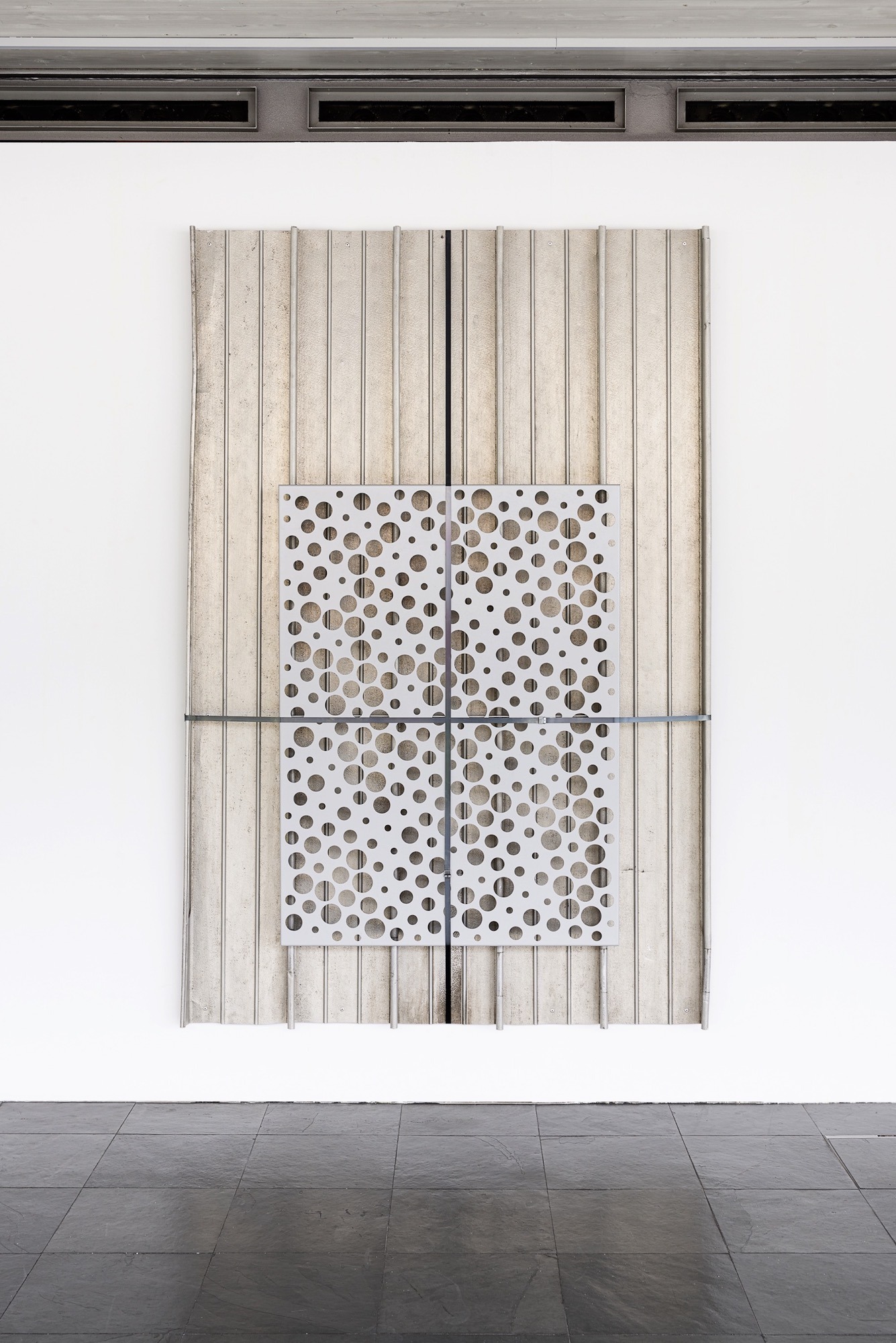
Installation view: Andreas Fogarasi. Nine Buildings, Stripped (Rinterzelt), Kunsthalle Wien 2019, © Andreas Fogarasi & BILDRECHT GmbH, 2019, Photo: Jorit Aust
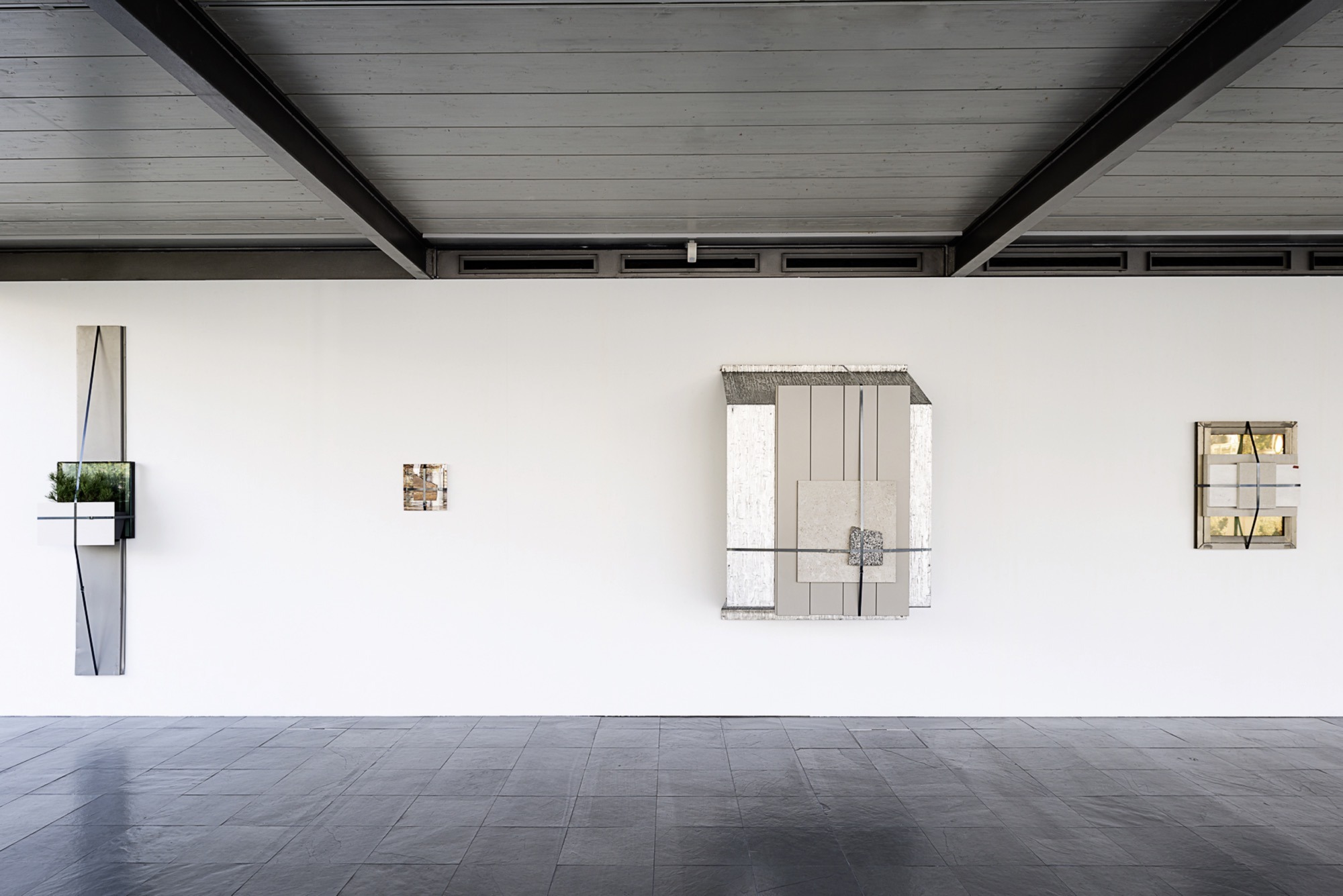
Installation view: Andreas Fogarasi. Nine Buildings, Stripped, Kunsthalle Wien 2019, © Andreas Fogarasi & BILDRECHT GmbH, 2019, Photo: Jorit Aust
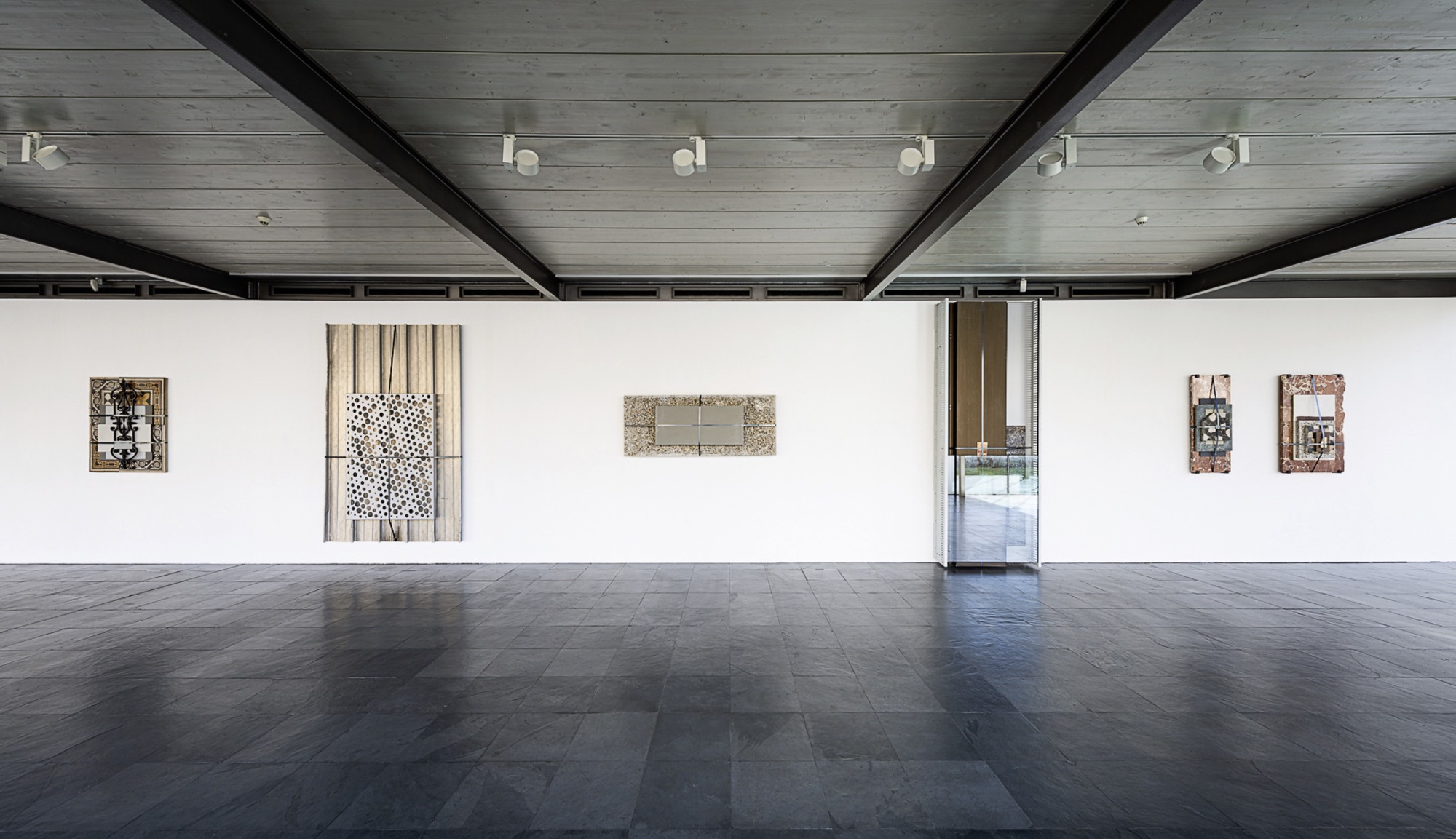
Installation view: Andreas Fogarasi. Nine Buildings, Stripped, Kunsthalle Wien 2019, © Andreas Fogarasi & BILDRECHT GmbH, 2019, Photo: Jorit Aust
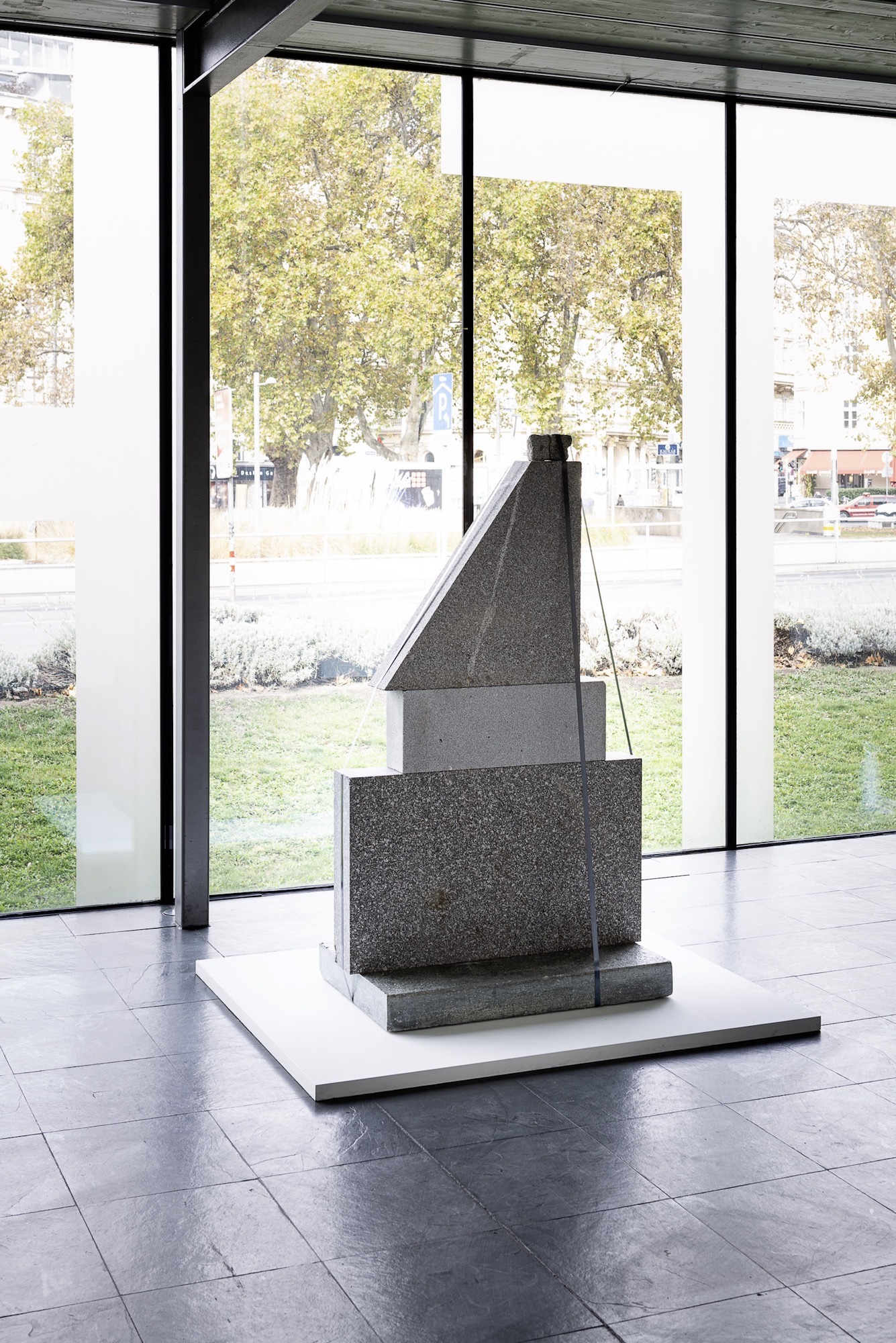
Installation view: Andreas Fogarasi. Nine Buildings, Stripped (Stock im Eisen), Kunsthalle Wien 2019, © Andreas Fogarasi & BILDRECHT GmbH, 2019, Photo: Jorit Aust
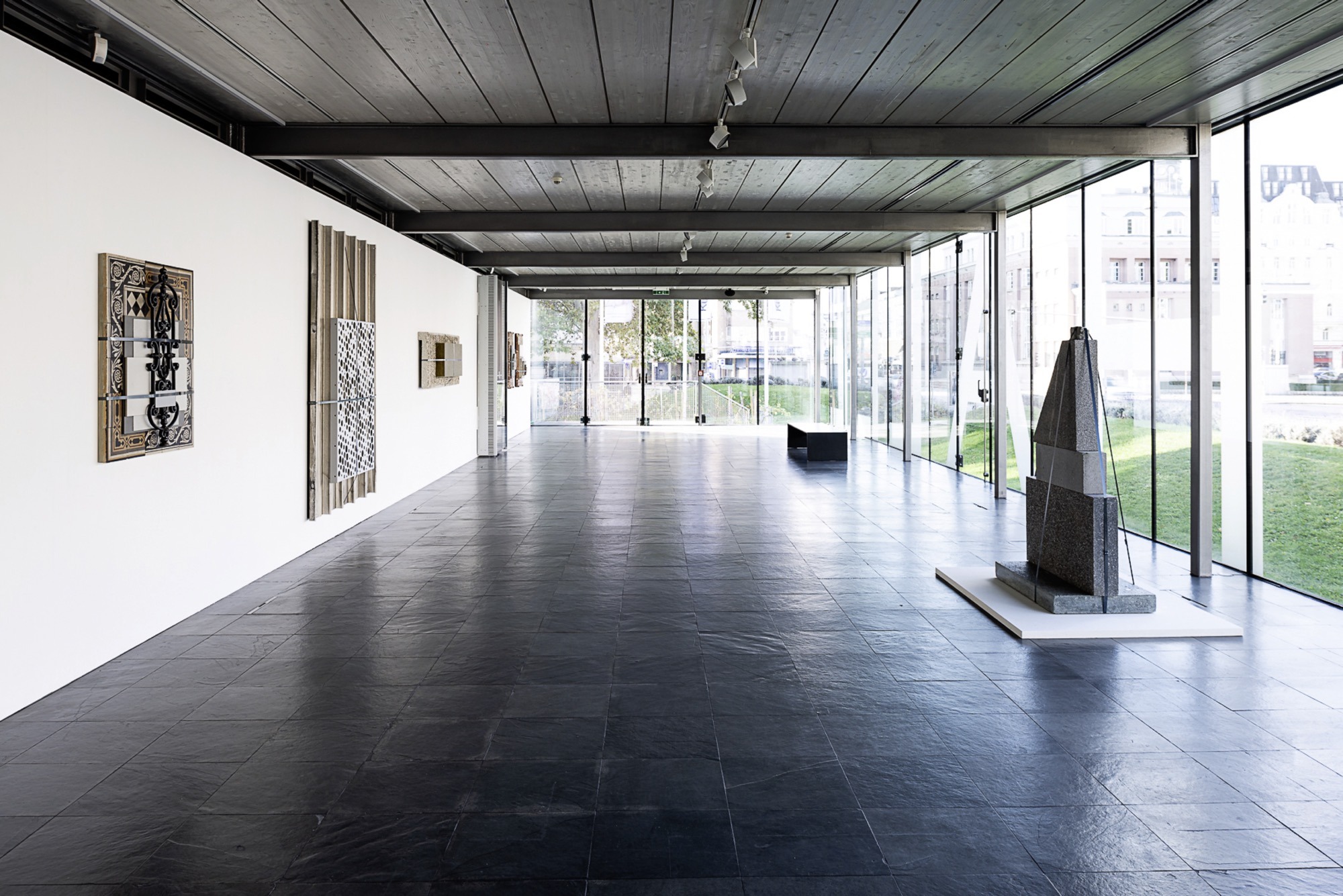
Installation view: Andreas Fogarasi. Nine Buildings, Stripped, Kunsthalle Wien 2019, © Andreas Fogarasi & BILDRECHT GmbH, 2019, Photo: Jorit Aust
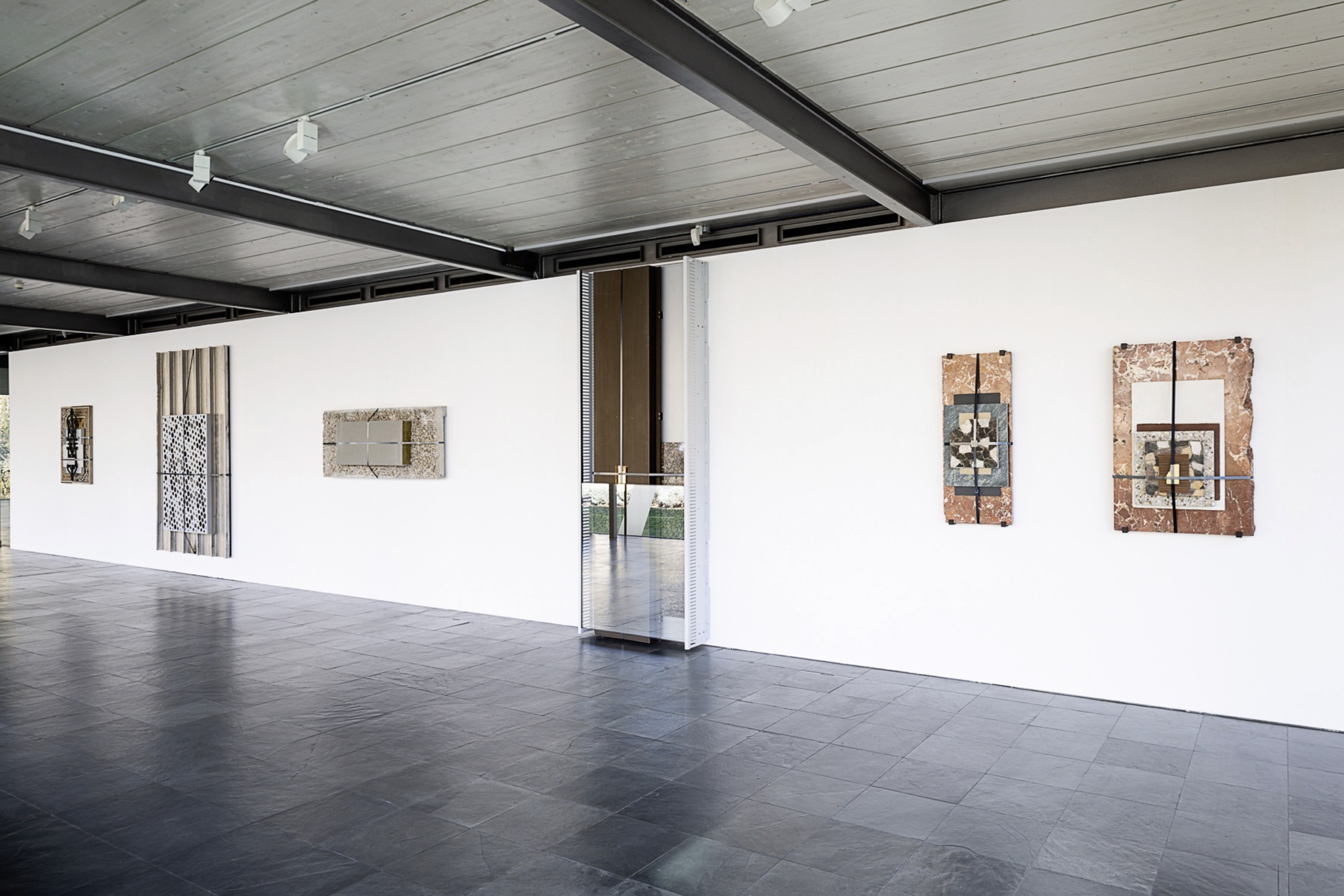
Installation view: Andreas Fogarasi. Nine Buildings, Stripped, Kunsthalle Wien 2019, © Andreas Fogarasi & BILDRECHT GmbH, 2019, Photo: Jorit Aust
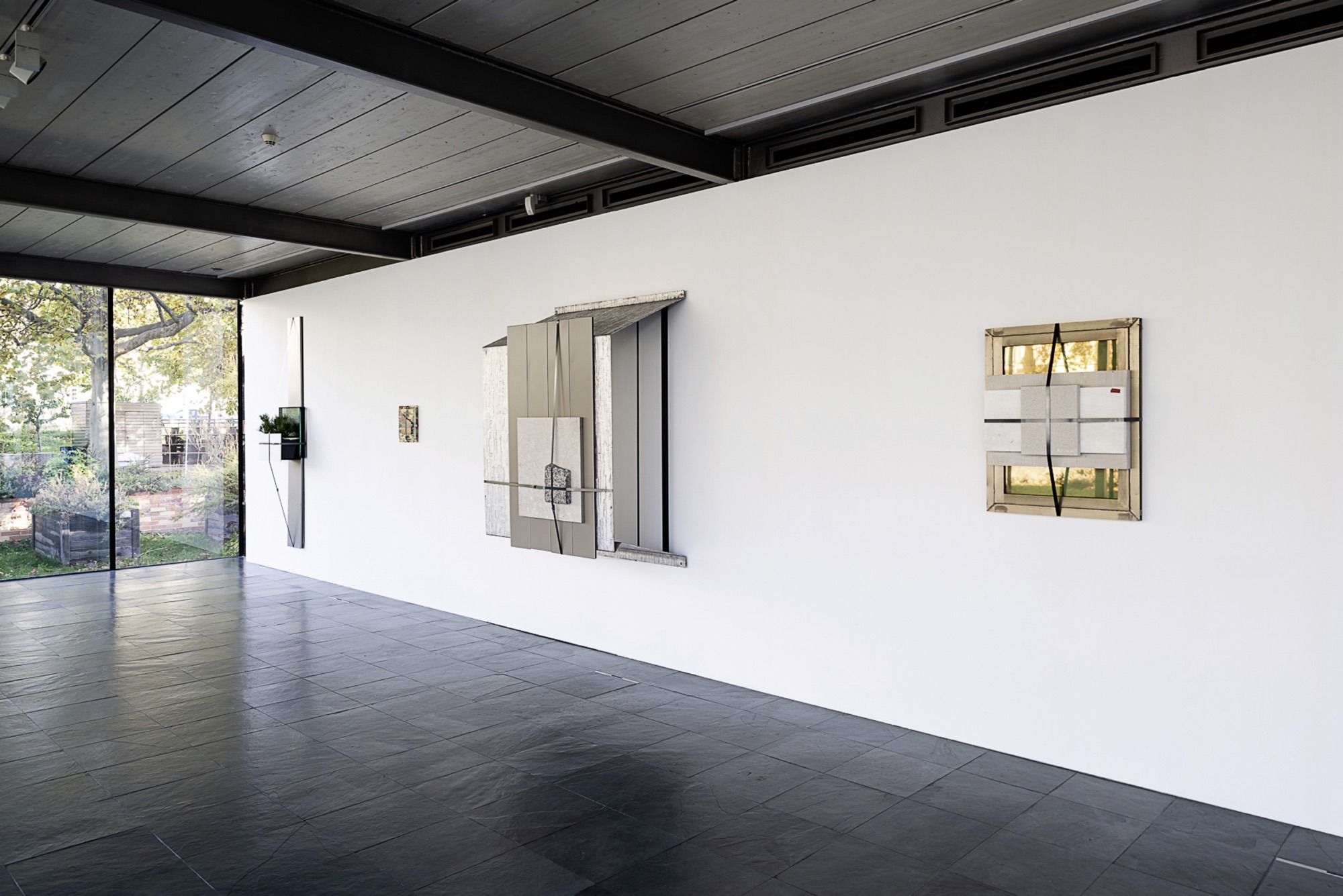
Installation view: Andreas Fogarasi. Nine Buildings, Stripped, Kunsthalle Wien 2019, © Andreas Fogarasi & BILDRECHT GmbH, 2019, Photo: Jorit Aust
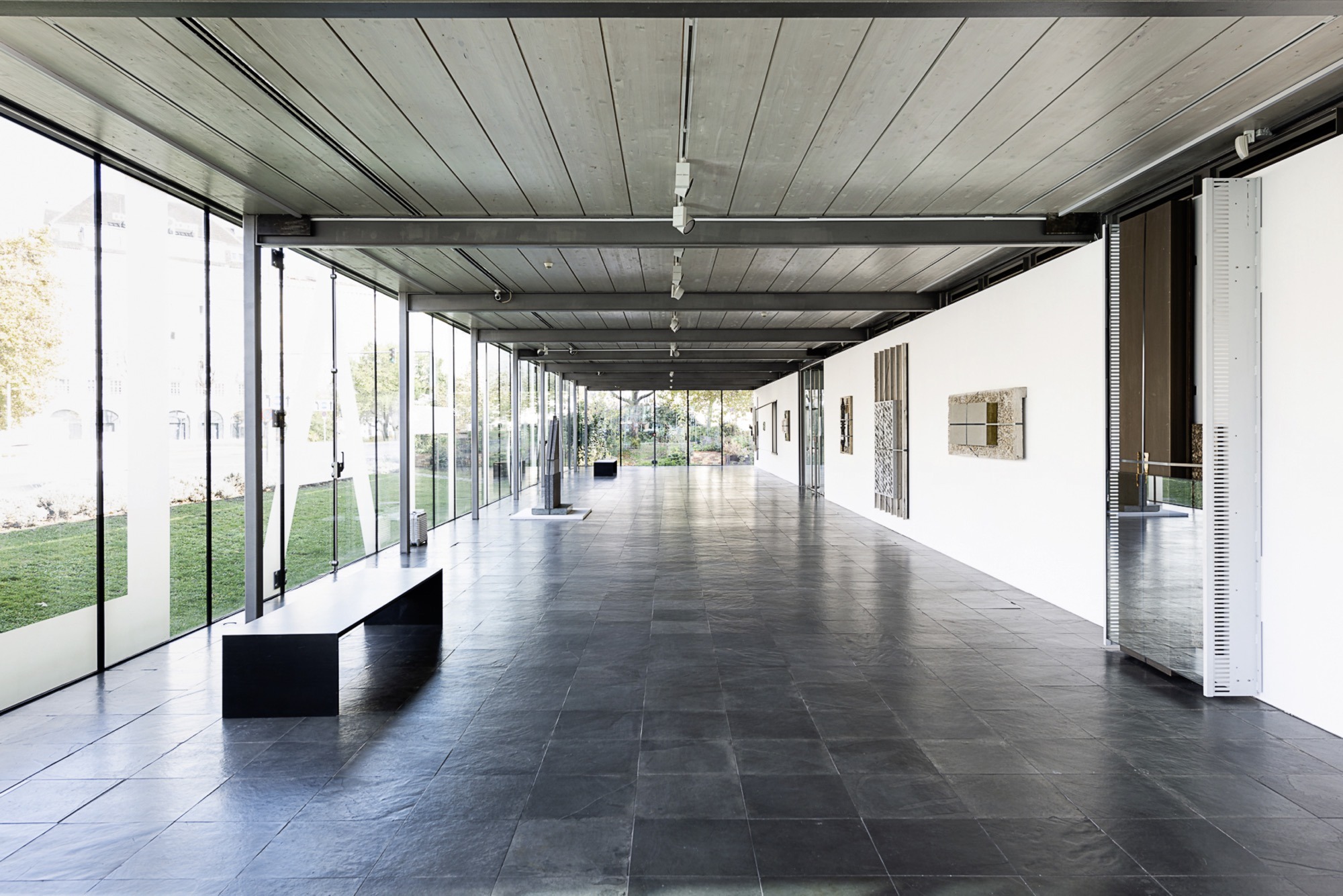
Installation view: Andreas Fogarasi. Nine Buildings, Stripped, Kunsthalle Wien 2019, © Andreas Fogarasi & BILDRECHT GmbH, 2019, Photo: Jorit Aust
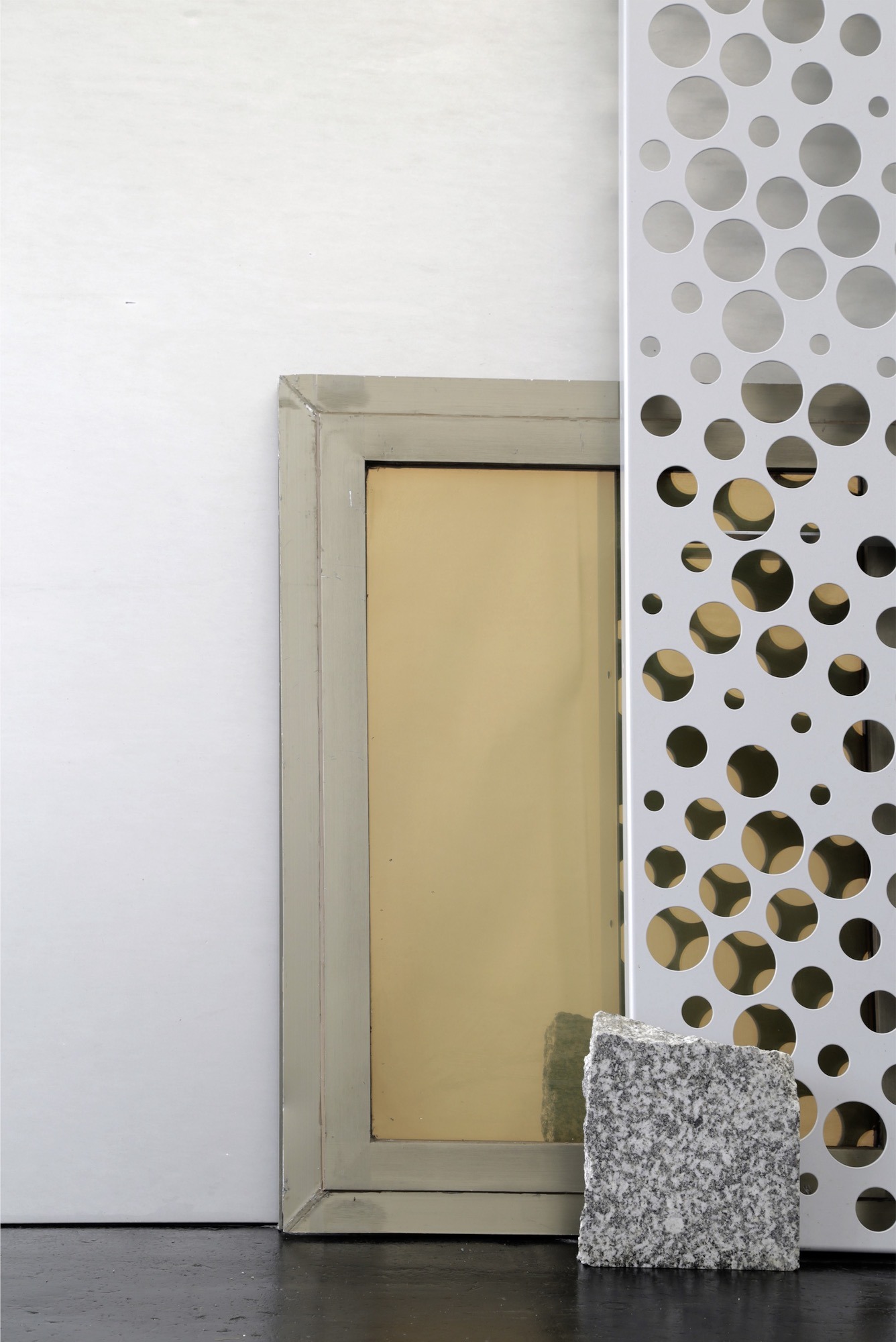
Andreas Fogarasi, Studio View, 2019, © Andreas Fogarasi & BILDRECHT GmbH, 2019, Courtesy the artist, Photo: Kunsthalle Wien
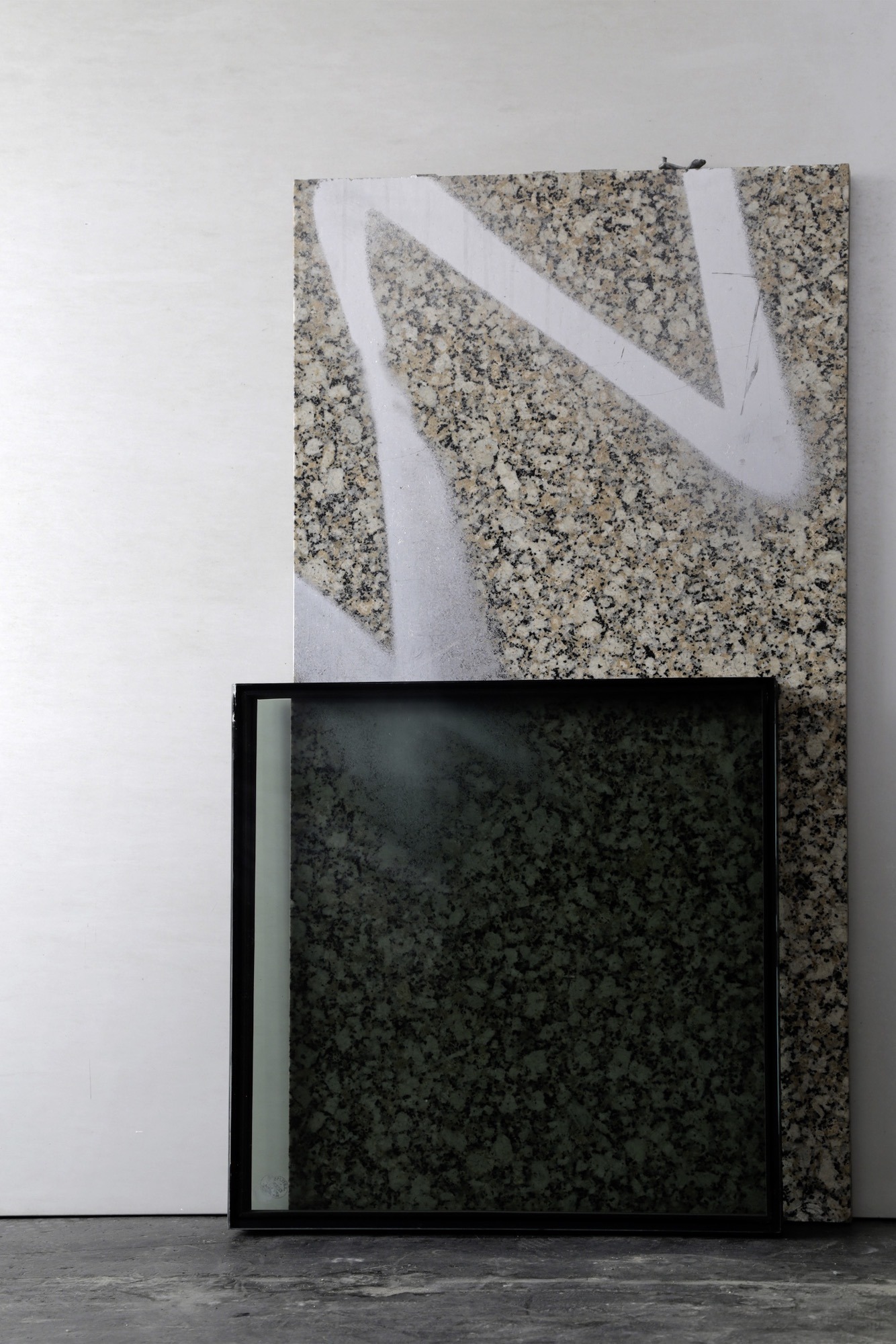
Andreas Fogarasi, Studio View, 2019, © Andreas Fogarasi & BILDRECHT GmbH, 2019, Courtesy the artist, Photo: Kunsthalle Wien
ANDREAS FOGARASI
Nine Buildings, Stripped
13 November 2019 - 2 February 2020
Andreas Fogarasi’s art focuses on points of contact between visual culture—fine art, design, architecture—and social reality. What do society, politics, or history “look like”? Where and how do the basic parameters of our communities become apparent in the thoroughly human-made settings of our everyday lives? The city with its manifold surfaces is a central object of Fogarasi’s observations. Scrutinizing its ever-changing fabric, he analyses the emergence and visible expression of political, economic, cultural, and sociological deep structures.
Processes of urban transformation and their manifestations in surfaces are also at the heart of Nine Buildings, Stripped. Kunsthalle Wien Karlsplatz—itself a scene of architectonic transformation: Until early 2001, the site was occupied by a distinctive yellow container-like block, Kunsthalle Wien’s temporary first home—showcases newly produced sculptures for an exemplary study of the dynamics that characterize the transition of urban landscapes. Unassuming at first glance, Fogarasi’s presentation consists of wall-mounted and freestanding “material packages”: composed of original fragments of buildings that no longer exist and samples or parts of the visible exterior of the structures that replaced them (façade cladding, floor tiles, window and door elements, etc.), they offer radically abstract portraits, reduced to materiality, colours, and tactile qualities, of specific urban situations across time. Between image and sculpture, surface and depth, document and construct, they embody example cases of how we build and rebuild at given moments: material freeze-frames that capture the complexity of the city’s genesis in vivid tableaus.
Andreas Fogarasi (b. Vienna, 1977) lives in Vienna. His work has been presented at institutions in numerous countries: Museo Tamayo, Mexico City; Ludwig Museum, Budapest; New Museum, New York; Kunstverein für die Rheinlande und Westfalen, Düsseldorf; Muzej suvremene umjetnosti, Zagreb; CAC, Vilnius; Frankfurter Kunstverein; and Palais de Tokyo, Paris.
Solo exhibitions (selection): Georg Kargl Fine Arts, Vienna (2017); Proyectos Monclova, Mexico City (2016); MAK Center, Los Angeles (with Oscar Tuazon); Galeria Vermelho, São Paulo; Galerie für Zeitgenössische Kunst Leipzig; Haus Konstruktiv, Zurich (2014); Prefix ICA, Toronto (2012); Museo Reina Sofía, Madrid (2011); Ludwig Forum, Aachen (2010); Lombard-Freid Projects, New York; and in the Hungarian pavilion at the 52nd Venice Biennale (2007), where his work Culture and Leisure [Kultur und Freizeit] earned him the Golden Lion for the best national participation.
Curator: Maximilian Geymüller
Nine Buildings, Stripped
13 November 2019 - 2 February 2020
Andreas Fogarasi’s art focuses on points of contact between visual culture—fine art, design, architecture—and social reality. What do society, politics, or history “look like”? Where and how do the basic parameters of our communities become apparent in the thoroughly human-made settings of our everyday lives? The city with its manifold surfaces is a central object of Fogarasi’s observations. Scrutinizing its ever-changing fabric, he analyses the emergence and visible expression of political, economic, cultural, and sociological deep structures.
Processes of urban transformation and their manifestations in surfaces are also at the heart of Nine Buildings, Stripped. Kunsthalle Wien Karlsplatz—itself a scene of architectonic transformation: Until early 2001, the site was occupied by a distinctive yellow container-like block, Kunsthalle Wien’s temporary first home—showcases newly produced sculptures for an exemplary study of the dynamics that characterize the transition of urban landscapes. Unassuming at first glance, Fogarasi’s presentation consists of wall-mounted and freestanding “material packages”: composed of original fragments of buildings that no longer exist and samples or parts of the visible exterior of the structures that replaced them (façade cladding, floor tiles, window and door elements, etc.), they offer radically abstract portraits, reduced to materiality, colours, and tactile qualities, of specific urban situations across time. Between image and sculpture, surface and depth, document and construct, they embody example cases of how we build and rebuild at given moments: material freeze-frames that capture the complexity of the city’s genesis in vivid tableaus.
Andreas Fogarasi (b. Vienna, 1977) lives in Vienna. His work has been presented at institutions in numerous countries: Museo Tamayo, Mexico City; Ludwig Museum, Budapest; New Museum, New York; Kunstverein für die Rheinlande und Westfalen, Düsseldorf; Muzej suvremene umjetnosti, Zagreb; CAC, Vilnius; Frankfurter Kunstverein; and Palais de Tokyo, Paris.
Solo exhibitions (selection): Georg Kargl Fine Arts, Vienna (2017); Proyectos Monclova, Mexico City (2016); MAK Center, Los Angeles (with Oscar Tuazon); Galeria Vermelho, São Paulo; Galerie für Zeitgenössische Kunst Leipzig; Haus Konstruktiv, Zurich (2014); Prefix ICA, Toronto (2012); Museo Reina Sofía, Madrid (2011); Ludwig Forum, Aachen (2010); Lombard-Freid Projects, New York; and in the Hungarian pavilion at the 52nd Venice Biennale (2007), where his work Culture and Leisure [Kultur und Freizeit] earned him the Golden Lion for the best national participation.
Curator: Maximilian Geymüller
